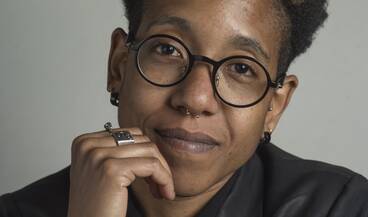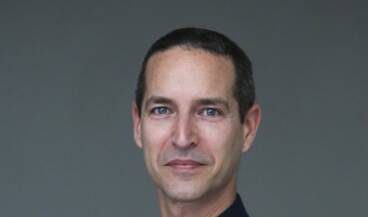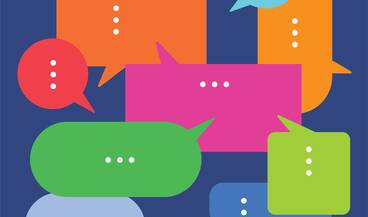Heute
10:00 - 17:00
10:00 - 17:00
Dienstag bis Mittwoch 10:00 - 17:00
Donnerstag 10:00 - 19:00
Freitag bis Sonntag 10:00 - 17:00
Montag geschlossen
Dienstag bis Mittwoch und Freitag 10:00 - 18:00
Donnerstag 10:00 - 19:00
Samstag bis Montag geschlossen
Karfreitag 03.04.2026 10:00 - 17:00
Karsamstag 04.04.2026 10:00 - 17:00
Ostersonntag 05.04.2026 10:00 - 17:00
Ostermontag 06.04.2026 10:00 - 17:00
Sechseläuten 20.04.2026 10:00 - 17:00
Tag der Arbeit 01.05.2026 10:00 - 17:00
Auffahrt 14.05.2026 10:00 - 17:00
Pfingsten 24.05.2026 10:00 - 17:00
Pfingstmontag 25.05.2026 10:00 - 17:00
Nationalfeiertag 01.08.2026 10:00 - 17:00
Lange Nacht der Museen 05.09.2026 10:00 - 17:00
18:00 - 23:59
Lange Nacht der Museen 06.09.2026 0:00 - 2:00
10:00 - 17:00
Knabenschiessen 14.09.2026 geschlossen
Familientag 18.10.2026 10:00 - 17:00
21.12.2026 10:00 - 17:00
22.12.2026 10:00 - 17:00
23.12.2026 10:00 - 17:00
Heiliger Abend 24.12.2026 10:00 - 14:00
Weihnachten 25.12.2026 10:00 - 17:00
Stephanstag 26.12.2026 10:00 - 17:00
27.12.2026 10:00 - 17:00
28.12.2026 10:00 - 17:00
29.12.2026 10:00 - 17:00
30.12.2026 10:00 - 17:00
Silvester 31.12.2026 10:00 - 17:00
Neujahr 01.01.2027 10:00 - 17:00
Berchtoldstag 02.01.2027 10:00 - 17:00
accessibility.openinghours.special_opening_hours.link
Alle anzeigen10:00 - 17:00
Dienstag bis Mittwoch 10:00 - 17:00
Donnerstag 10:00 - 19:00
Freitag bis Sonntag 10:00 - 17:00
Montag geschlossen
Dienstag bis Mittwoch und Freitag 10:00 - 18:00
Donnerstag 10:00 - 19:00
Samstag bis Montag geschlossen
Karfreitag 03.04.2026 10:00 - 17:00
Karsamstag 04.04.2026 10:00 - 17:00
Ostersonntag 05.04.2026 10:00 - 17:00
Ostermontag 06.04.2026 10:00 - 17:00
Sechseläuten 20.04.2026 10:00 - 17:00
Tag der Arbeit 01.05.2026 10:00 - 17:00
Auffahrt 14.05.2026 10:00 - 17:00
Pfingsten 24.05.2026 10:00 - 17:00
Pfingstmontag 25.05.2026 10:00 - 17:00
Nationalfeiertag 01.08.2026 10:00 - 17:00
Lange Nacht der Museen 05.09.2026 10:00 - 17:00
18:00 - 23:59
Lange Nacht der Museen 06.09.2026 0:00 - 2:00
10:00 - 17:00
Knabenschiessen 14.09.2026 geschlossen
Familientag 18.10.2026 10:00 - 17:00
21.12.2026 10:00 - 17:00
22.12.2026 10:00 - 17:00
23.12.2026 10:00 - 17:00
Heiliger Abend 24.12.2026 10:00 - 14:00
Weihnachten 25.12.2026 10:00 - 17:00
Stephanstag 26.12.2026 10:00 - 17:00
27.12.2026 10:00 - 17:00
28.12.2026 10:00 - 17:00
29.12.2026 10:00 - 17:00
30.12.2026 10:00 - 17:00
Silvester 31.12.2026 10:00 - 17:00
Neujahr 01.01.2027 10:00 - 17:00
Berchtoldstag 02.01.2027 10:00 - 17:00
accessibility.openinghours.special_opening_hours.link
Alle anzeigenFokus
Switzerland has many languages and is rightly proud of this diversity. But could having different languages make it hard for everyone to feel included? Are some language differences treated unfairly? How do people in Switzerland manage these differences in their daily lives? In this FOKUS event, we explore the ways that language can act as both a resource and an obstacle in Swiss society. Through a series of interactive activities and short presentations, we discuss the kinds of linguistic obstacles that people face and consider the different strategies they adopt to overcome them.
Our goal is to enable a dialogue about the role that language can play in making Switzerland a more inclusive society. The event also features a conversation on these topics between Nayansaku Mufwankolo, Lecturer in Cultural Studies and Critical Theory and Head of Inclusion at the Haute école d’art et de design de Genève, and Erez Levon, Professor of Sociolinguistics at the University of Bern.
The event is organized in collaboration with the Center for the Study of Language and Society (CSLS) at the University of Bern. An interdisciplinary center dedicated to research and advocacy on the intersection between language and society, the CSLS seeks to foster studies of the relationship between language and different forms of social inequality.
The event will be held in English and is free of charge.
A reservation is mandatory. We recommend visiting the exhibition before the event. With registration for the event the museum entrance is free of charge.
Museumstrasse 2
8001 Zürich



Sprachen sind nicht nur blosses Mittel zur Kommunikation, sondern sie bestimmen unseren Alltag, sind Teil der Kultur, berühren uns unmittelbar und verbinden uns mit anderen Menschen oder grenzen uns von ihnen ab. In der Schweiz sind neben den vier Landessprachen unzählige Dialekte, Akzente, Slangs und Sprachen von Eingewanderten zu hören. Das Landesmuseum nimmt die Besuchenden mit auf eine sinnliche Reise durch die Schweizer Sprachräume. Mit interaktiver Soundtechnik erfährt man, wie die Vorläufer unserer Sprachen geboren wurden, sie sich weiterentwickelten oder gar ausstarben, neue Sprach- und Kulturgrenzen entstanden und wie um sie gestritten wurde und auch heute noch gerungen wird. Zurück in der Gegenwart taucht die Ausstellung in die sprachliche Vielfalt des Alltags ein, wo die Sprache sowohl Ressource als auch Hindernis sein kann oder manchmal ganz einfach überhört wird.